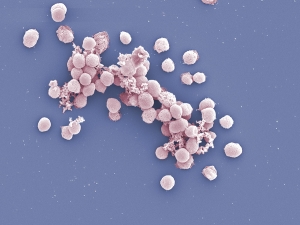

Research Bio
Dipti Nayak is an assistant professor in the Department of Molecular and Cell Biology. Her research includes the following:
Based on the evolutionary history of conserved molecules and cellular features, life on Earth can be divided into three distinct domains: Bacteria, Eukarya, and the enigmatic Archaea. Our knowledge of the domain-specific molecular and cellular attributes of bacterial and eukaryotic organisms is comprehensive. However, despite their abundance and importance, very little is known about the cell biology or physiology of archaea, partially due to the lack of well-developed model organisms. The goal of the Nayak lab is to use to methanogenic archaea as a model system to explore various facets of archaeal biology including methanogenesis, a metabolic trait that is unique to, and widespread in, Archaea.
Methanogenesis, methane production coupled to growth and energy conservation, is the only physiological attribute that is exclusively present in Archaea. Moreover, the scope of methanogenic archaea has broadened since their initial discovery: now, representatives can be found in all major phyla across the domain. Significantly, methanogenic archaea produce 1 gigaton of methane annually, which amounts to ca. 2/3rd of the emissions of the second most abundant greenhouse gas with a warming potential 25-times that of carbon dioxide. Additionally, methanogens are important members of the microbial community in humans, other mammals and insects, as well protists. Taken together, a uniquely archaeal identity, in addition to wide ranging implications for climate change and human health, makes methanogens ideal model systems to investigate the molecular and cellular biology of archaea.
The Nayak lab is developing a wide range of genetic, genomic, and biochemical tools for methanogenic archaea of the genus Methanosarcina as well as implementing these techniques to study their physiology, metabolism, evolution, and cell biology.




